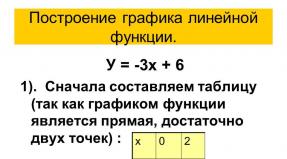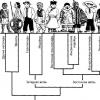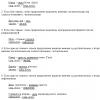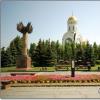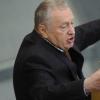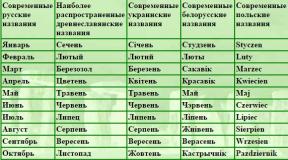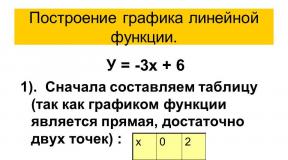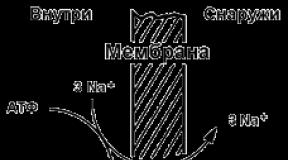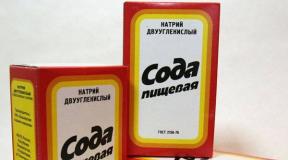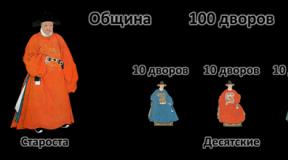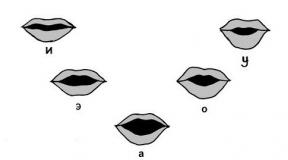Методичка по английскому языку 2 курс. Топик: Методичка по Английскому языку для экономистов. Федеральное государственное
образовательное учреждение среднего
профессионального образования
В разделе на вопрос Нужна методичка по обучению англ. языку с самого начала. заданный автором шеврон
лучший ответ это 3.
Английский самостоятельно
Вы обречены на успех с этим методом изучений английского языка!
Результаты поиска
1.
"ABC" Английский Для Начинающих "С Нуля"!
Бесплатные озвученные уроки английского языка для начинающих. Произношение, звуки английского языка, выражения. Аудио-файлы для лучшего английского...
at-english.ru/study.htm - Сохраненная копия - Похожие
2.
Английский язык для начинающих: изучение онлайн, бесплатное обучение
Английские тексты с переводом, фильмы на английском языке, упражнения на закрепление материала.
Радио - Видео - Тексты и статьи - Тексты песен с переводом
englishtexts.ru/ - Сохраненная копия - Похожие
3.
Интернет-курс английского языка для начинающих
Два озвученных курса английского языка по классической методике для начинающих. Бесплатное демо.
4flaga.ru/ - Сохраненная копия - Похожие
4.
Lesson1 - Английский для начинающих
Английский для начинающих. Справочный материал, азы английской грамматики, неправильные глаголы и другие исключения. Англо-русский разговорник, слова по...
ссылка
- Сохраненная копия - Похожие
5.
Английский язык для начинающих. Материалы и уроки начинающим...
Здесь вы можете найти английский язык для начинающих. Материалы и уроки начинающим изучать английский язык.
ссылка
› Карта сайта - Сохраненная копия - Похожие
6.
Изучение английского языка - курсы английского языка в Москве...
1 уровень - английский для начинающих, английский язык для детей, ..это начальная ступень овладения английским языком, английский язык для начинающих. ..
- Сохраненная копия
7.
Английский язык для начинающих. Разговорный английский язык в онлайн.
Нужны разговорные курсы изучения английского языка в онлайн? Английский язык для начинающих+курсы английского детям, начинающим изучать английский язык.
natka-en101.net.ru/english-basico.html - Сохраненная копия - Похожиепри наличии Интернета и компьютера это не проблема.
Кафедра английского языка
О.С. Колыбенко
ПОСОБИЕ ПО АНГЛИЙСКОМУ ЯЗЫКУ
РАЗГОВОРНЫЕ ТЕМЫ
МИНИСТЕРСТВО СЕЛЬСКОГО ХОЗЯЙСТВА И ПРОДОВОЛЬСТВИЯ РЕСПУБЛИКИ БЕЛАРУСЬ
ГЛАВНОЕ УПРАВЛЕНИЕ ОБРАЗОВАНИЯ, НАУКИ И КАДРОВ
Учреждение образования «БЕЛОРУССКАЯ ГОСУДАРСТВЕННАЯ СЕЛЬСКОХОЗЯЙСТВЕННАЯ АКАДЕМИЯ»
Кафедра английского языка
О.С. Колыбенко
ПОСОБИЕ ПО АНГЛИЙСКОМУ ЯЗЫКУ
РАЗГОВОРНЫЕ ТЕМЫ
Для студентов всех факультетов
Издание третье, исправленное и дополненное
29 05. 2012 г. (протокол № 10).
старший преподаватель О.С. Колыбенко.
Рецензент:
Старший преподаватель И. В. Осипова.
Колыбенко, О. С.
Пособие по английскому языку «Разговорные темы» / О. С. Колыбенко. – Горки: БГСХА, 2012. – 62 с.
Данное пособие включает разговорные темы по английскому языку. Каждый урок содержит тематический словарь, серию предтекстовых и послетекстовых упражнений, имеющих коммуникативно-речевую направленность.
Пособие предназначено для студентов всех факультетов.
УДК 805. 0 (072)
© УО «Белорусская государственная сельскохозяйственная академия», 2012
ВВЕДЕНИЕ
Пособие предназначено для студентов первых курсов всех факультетов.
Цель пособия – расширение лексического запаса студентов, а также развитие и совершенствование навыков диалогической и монологической речи в рамках указанных тем.
Пособие состоит из восьми уроков. Каждый урок содержит тематический словарь; базовый и дополнительные тексты; серию предтекстовых и послетекстовых заданий, имеющих коммуникативно
– речевую направленность.
Темы расположены в том порядке, в котором их обычно изучают: «Моя семья», «Я – студент», «Академия», «Великобритания», «Сельское хозяйство Великобритании», «Беларусь», «Сельское хозяйство Беларуси».
Лексика текстов отрабатывается и усваивается в ходе выполнения упражнений. Также включены задания творческого характера, требующие самостоятельного поиска нужной информации с последующей ее презентацией.
Пособие может быть использовано как для аудиторной, так и для самостоятельной работы студентов.
Topical Vocabulary
1) biography – биография;
2) name – имя;
3) surname – фамилия;
4) nationality – национальность;
5) age – возраст;
6) occupation – занятие, профессия;
7) to be married – быть женатым, быть замужем.
8) to be single – быть холостым, быть незамужем;
9) to leave (finish) school – закончить школу;
10) applicant – абитуриент;
11) first-year student – студент-первокурсник;
12) to get acquainted – познакомиться;
13) to be born – родиться;
14) to come from – происходить, быть родом;
15) to enter the university – поступить в университет;
16) to fail in аn exam – провалить (не сдать) экзамен;
17) to pass exams – сдать экзамены;
18) the extended family – патриархальная семья;
19) the nuclear family – традиционная семья;
20) the blended family – смешанная семья;
21) aunt – тетя;
22) uncle – дядя;
23) niece – племянница;
24) nephew – племянник;
25) grandparents – дедушка и бабушка;
26) granddaughter – внучка;
27) grandson – внук;
28) to be divorced – быть в разводе;
29) to be on pension – быть на пенсии;
30) husband – муж;
31) wife – жена;
32) cousin – двоюродный брат (сестра);
33) mother-in-law – свекровь, теща;
39) baby – грудной ребенок;
40) to consist of – состоять из;
41) to look like – выглядеть;
42) to share domestic duties – разделять домашние обязанности;
43) to get along with – ладить, уживаться;
44) lifespan – продолжительность жизни;
45) adulthood – взрослое состояние, зрелость;
46) infancy – младенчество;
47) maturity – зрелость.
Ex. 1. Read the text.
The family is very important as a unit in our society.
My family is neither big nor small. I have a father, called Nikolay. He works as a manager; he is 47. My mother"s name is Olga, she is 46, and she is a housewife. I"m sixteen, going on seventeen. My favorite subject is algebra, and my hobby is sport. My family is happy and friendly. I also have a grandmother, she is a sweet creature. My granny is tender and patient. She respects and loves all of us. In my family we have consideration for others, warmheartedness and understanding. There is no place for indifference, selfishness and rudeness.
My father works hard to provide food and clothes for the family; he finances us. My mother and I share our common joys and sorrows. She keeps the house and the family. My parents are very much concerned about my future and I love them very dearly.
Ex. 2. Answer the questions.
1. What is your name? /Who are you? 2. Where and when were you born? 3. How old are you? 4. Are you Belarusian? 5. Where do you live? /What"s your permanent address? 6. When did you finish school? 7. How well did you do at school? 8. What were your favorite subjects? 9. How many members are there in your family? 10. What relations do you have in your family (parents, sisters, brothers, etc.)? 11. Have you got any grandparents? Where do they live? 12. Have you got any uncles or aunts? 13. Do you have any cousins? 14. Do you have any nieces or nephews? 15. Where does your family live? 16. Where do your parents work? 17. How do they call your father? 18. How do they call your mother? 19. What are your brothers and sisters (if any)? 20. Which of you is the oldest person in the family? 21. Which of you is the youngest? 22. Does a family need a leader? Why? Why not? /Who is the head of the family: the father or the mother? 23. Where does your family spend holidays? 24. Who usually does the
housework (goes shopping)? 25. Do you have any relatives, who live abroad? How often do you visit them? Do they often come to see you? 26. Why is it important to have a good family? / What is a happy family in your opinion?
Ex. 3. Every family has fascinating bits of family history. Think about your family and pick out an interesting piece of family history, which you want to tell your friend.
Ex. 4. Tell about your childhood. The following questions may help you.
1. What is your position in the family (the only child, the eldest, the youngest, the second of four, etc.)? 2. Who was your favorite relative when you were a child? Why? 3. Which toy did you like most? 4. Who did you play with? 5. What did you hate eating? 6. What"s your most vivid memory of the house or flat where you grew up? 7. What smells or sounds can you recall from your childhood? 8. What"s your earliest memory of your life? 9. Describe your favorite photo from your childhood. 10. What was your favorite age? Why? 11. Tell about: a) something that disappointed you once you were a child; b) an event from your childhood that makes you smile now when you think about it. 12. Do you agree that childhood is the happiest time in your life? Why? Why not?
Ex. 5. Read the text and answer the questions after it.
There are different kinds of families. Family size can be regulated by tradition, religion or by standard of living.
In old Russia, in many parts of Asia children must help their parents by working in the fields with them.
Parents rely on their children to take care of them when they are elderly because they live in a poor society and have little chance to save for retirement.
And what society is considered to be poor? Where people consume most of what they produce and can’t save money. In such conditions infant mortality is high, children don’t survive infancy and so don’t reach adulthood. Thus, the parents are forced to have 7, 8 or more children hoping that 3 or 4 of them may survive infancy and reach adulthood.
But important improvements in health care have made longer life possible:
1. We have better ways to provide people with clean water and sanitary living conditions.
2. Better medical treatment has extended people’s lives.
So, all these improvements in health and a decline in infant mortality have led to a decline in the birth rate. Parents realize now that they don’t need to have so many children just to insure that some will reach maturity.
1. What factors determine the size of the family? 2. Why do parents rely on their children? 3. Why do some parents have many children? 4. What has extended lifespan? 5. Do you think that family size can be regulated?
Ex. 6. Look through the following text and note down the reasons why:
a) the author thinks it must be awful to be the only child;
b) the author supposes there are some advantages too;
c) the author thinks big families are better.
I Prefer a Big Family
I"ve got one brother – Roland. He"s all right, I suppose, but I wish I had more brothers and sisters. I think it must be awful to be an only child. An only child is often spoilt – they get everything they want from their parents all the time. And then sometimes they"re a bit shy or at least not very sociable because they"re not used to being with other people. Well, I suppose there are some advantages too. I mean, you get lots of attention and time from your parents and you don"t have to share everything with the other children. But I think big families are better. A big family teaches the older children how to look after the younger ones and that"s a good thing. All the big families I know are always friendly and good fun. Of course, it"s more expensive to look after a big family – so money can be a problem. Personally I think the ideal family size is four. I"d like to have a sister and two brothers. That would be nice. Roland"s OK though. He"s nineteen now – two years older than me. He"s tall, dark with black wavy hair and brown eyes. Some of my friends say he"s good-looking but I don"t know about that. He"s very quiet and rather serious. He reads a lot and likes fishing. Last year, he started helping in our local youth club. The younger children like him very much. He organized two summer trips for them.
The person in my family who I get on best is my cousin Ellie.
She"s really great. She"s a year older than me – she is 18. She"s got long, straight, fair hair. She"s of medium height and quite slim. She"s very pretty too. I stay with Ellie"s family in summer. We go cycling a lot – round the countryside. We go dancing too. Ellie likes the same kind of music as I do. She had to take her exams again last year – but she passed them the second time. Then she left school and she got a job in a bank. She"s changed quite a bit since she started working at the bank. She"s made a lot of new friends and she goes out a lot more in the evenings now.
Ex. 7. Choose the sentence that doesn"t contradict the sentence from the text.
1. Some of my friends say he"s good-looking but I don"t know about that. a) The author doesn"t find his brother good-looking.
b) Roland"s brother has never thought of his brother"s appearance. c) The author doesn"t know what good-looking people look like.
2. She had to take her exams again last year – but she passed them the second time.
a) Ellie didn"t take her exams only once.
b) Ellie wanted to take her exams again last year. c) She passed exams twice.
Ex. 8. Fill in the missing parts of the sentences.
1 . ___ I think ____ family size is four.
2. He is ____ now, ____ years ____ than me.
3. He started _____ in our _____ .
4. The person in my family who I __ is my cousin Ellie.
5. She"s ____ height and ____ slim.
6. She"s changed ____.
7. She"s ____ a lot of friends and she ____ a lot____ .
Ex. 9. Write a paragraph about advantages and disadvantages of a big/small family.
Ex. 10. Fill in the gaps with the necessary information and speak about your family.
Our family is large (small, not very large). We are the family of seven (two, three, four, five, six): my mother, my father, my grandmother, my grandfather, my sister, my brother and I. My mother"s name is … She is … years old. She is a teacher (a doctor, a worker, an engineer). She is a very nice, kind and clever woman. My father"s name is ... He is ... years old. He is a worker (a teacher, an engineer, a doctor, a businessman). He is rather tall and strong. He is a man of strong character – and all of us love him very much. My grandmother"s name is ... She is ... years old. She does not work now, she is a pensioner, but she has a lot of work to do about the house. All of us try to help her. My grandfather" s name is... He is... years old. He is a pensioner too. My brother and sister are students (pupils). Their names are ... . They are older (younger) than me. We are a very good family. We love each other very much. In the evenings, when all the members of our family get together after work and study, we like to watch TV, to read books and newspapers, to talk about different things and to discuss all our problems together. When the weather is good we sometimes go for a walk. We have a small house in the country with a garden and a kitchen-garden. There is much work there and on week-ends we go there and work and have rest all together.
Ex. 11. There are some proverbs about family and family life. Match the proverbs with their Russian equivalents. Choose one of the
proverbs and make up a short story. |
||
East or West home is best. |
a) Брак – это лотерея. |
|
2) Men make houses, women make |
b) Маленькие детки – маленькие |
|
бедки, большие детки – большие |
||
Every Jack must have his Jill. |
c) Каков отец, таков и сын |
|
Marriage is a lottery. |
d) У каждой семьи есть своя |
|
семейная тайна. Из избы сору не |
||
Like father, like son. |
e) В гостях хорошо, а дома лучше. |
|
Little children, little sorrow, big |
f) Всякая невеста для своего |
|
children, big sorrow. |
жениха родится. |
|
7) Every family has a skeleton in the |
g) Кровь не вода. Свой своему |
|
поневоле брат. |
||
Blood is thicker than water. |
h) Мужчины создают дома, а |
|
женщины – семейный уют. |
||
Ex. 12. Tasks for Discussion:
1 . Topic for discussion: ―Your ideal wife/husband.‖
Prompts : intelligent, pretty, loves children, is satisfied with what he/she has, inspires love and is able to do so for many years; generous (великодушный), understanding, doesn"t create additional problems for a spouse, has sense of humor, is always interesting, is a friend.
2. Say what you think about the following: the professional level of the wife is higher than that of the husband.
Prompts : nothing special, modern women have equal rights with men, wouldn"t like to be in that husband"s place, much depends on the wife"s behavior.
3. You may hope to build a marriage as successful as that of your parents. Give your reasons if this is so.
4. The optimal model of behavior for two people who love each other. What is your opinion?
Prompts : each married couple ought to work out such a model for themselves, this model is optimal for an individual couple only, the relations between the two spouses depend on individual traits of their characters.
5. Tolstoy said that all happy families are alike. But what is a general portrait of a happy married couple?
Prompts : married because they loved each other, from the very beginning refuse to be dependent on their parents, plan their expenses together, both take part in housekeeping, their views on child upbringing are the same, prefer to spend their leisure time together, find each other as attractive as they did before marriage.
Отправить свою хорошую работу в базу знаний просто. Используйте форму, расположенную ниже
Студенты, аспиранты, молодые ученые, использующие базу знаний в своей учебе и работе, будут вам очень благодарны.
Размещено на http://www.allbest.ru/
БУРЯТСКАЯ ГОСУДАРСТВЕННАЯ СЕЛЬСКОХОЗЯЙСТВЕННАЯ
АКАДЕМИЯ им. В.Р. ФИЛИППОВА
Кафедра иностранных языков
УСТНЫЕ РАЗГОВОРНЫЕ ТЕМЫ
ПО АНГЛИЙСКОМУ ЯЗЫКУ ДЛЯ СТУДЕНТОВ 1-2 КУРСОВ
Учебно-методическое пособие
Улан-Удэ
Издательство БГСХА
Печатается по решению Методического Совета ФГОУ ВПО «Бурятская государственная сельскохозяйственная академия им. В.Р. Филиппова»
Рецензент: Мадасова М.М.
Под общей редакцией: Сандановой В.Б., Индосовой Н.В.
Устные разговорные темы по английскому языку для студентов 1-2 курсов: Уч. мет. пособие / Сост. В.Б.Санданова, Н.В.Индосова, В.Д. Надмидон и др. - Улан-Удэ: Изд-во БГСХА, 2005. - … с.
Настоящая методическая разработка по английскому языку предназначена для студентов первого и второго курсов всех факультетов.
Методическая разработка предназначена для формирования и развития навыков и умений устной разговорной речи по темам, предусмотренным программой обучения английскому языку студентов 1-2 курсов неязыковых вузов.
Методическая разработка включает в себя 15 тем, которые сопровождаются серией упражнений, направленных на формирование, тренировку и закрепление навыков и умений как монологической, так и диалогической речи.
Тексты носят информативно-познавательный и страноведческий характер, а упражнения - коммуникативную направленность.
Данная методическая разработка позволяет осуществить индивидуальный подход к студентам, так как все основные тексты дополняются упражнениями и текстами для более углубленного изучения.
Topic 1. My Family
Topic 2. Student Daily Routine
Topic 3. Our Academy
Topic 4. Great Britain
Topic 5. London.
Topic 6. Russia.
Topic 7. Moscow
Topic 8. The Republic of Buryatia
Topic 9. Ulan - Ude
Topic 10. The United States of America
Topic 11. Canada
Topic 12. Australia
Topic 13. New Zealand
Topic 14. Ecology
Topic 15. Student Research Work
MY FAMILY
Exercise 1. Study the topical vocabulary.
Relations by birth:
Relations by marriage:
|
Married couple - Father-in-law - Mother-in-law - Daughter-in-law - Brother-in-law - Sister-in-law - Stepchildren - Stepdaughter - |
свекор (отец мужа)/тесть (отец жены) свекровь (мать мужа)/тёща (мать жены) зять (муж дочери) невестка (жена сына) зять (муж сестры)/деверь (брат мужа)/шурин (брат жены) невестка (жена брата)/золовка (сестра мужа) падчерица и пасынок падчерица сводный брат сводная сестра холостяк |
People"s age:
How old are you? / What"s your age? = Сколько тебе лет? / Какой твой возраст?
I am 17 = I am 17 years old = Мне 17 лет
I am under 17 = Мне еще нет 17 лет
I am over 17=I am nearly 18=I am about 18 = Мне больше 17 лет / Мне около 18 лет
I was born on the 1 st (first) of January = Я родился (- ась ) 1- го января
2 nd (second)
3 rd (third)
4 th (fourth)
5 th (fifth)
26 th (twenty-sixth)
I was born in 1985 = Я родился (-ась) в 1985 году
To be under age = быть несовершеннолетним
(I am under age yet = Я еще несовершеннолетний )
To be of age = быть совершеннолетним
(I am of age already = Я уже совершеннолетний )
To come of age = достичь совершеннолетия
- (In 3 months I"ll come of age = Через 3 месяца я стану совершеннолетним )
She/He is in her (early, mid, late) teens (13-19) = She/He is a teenager = Она / Он - - подросток
She/He is in her (early, late) thirties = четвертый десяток (между 30 и 39 годами )
-//- forties = пятый десяток (между 40 и 49 годами)
She/He is a middle-aged person = Она / Он - средних лет
She/He is an elderly person = Он / Она - пожилой человек
Exercise 2. Study the new words and word-phrases of the text.
|
1. to be under age - 2. to be of age - 3. to come of age - 4. to be of the same age - 5. frankly speaking - 7. to overcome one"s drawback - 8. to enter smth. - 9. a first-year student - (second-, third-, fourth-, fifth- ) 10. to do one"s best - 11. to hunt a job - 12. to earn pocket money - 13. a roommate - 14. a cool guy - 16. to date smb. - 17. cherished dream - 18. as regards - 19. to go in for - 21. to be crazy about - 24. to leave smb. cold - 26. to be good at smth. - 27. life and soul of the party - 29. to look after - 31. the only son (daughter) - 32. to be married (to) - 39. a cosy house - 40. to be 13 years one"s senior - 41. to be 2 years one"s junior - 47. male singer - 48. female singer - |
быть несовершеннолетним быть совершеннолетним достичь совершеннолетия быть одного и того же возраста откровенно говоря побороть / преодолеть чей-то недостаток поступать (куда-л.) студент первого курса (второго, третьего, четвертого, пятого ) сделать всё от себя зависящее искать работу зарабатывать карманные деньги сосед (соседка) по комнате классный парень ходить на свидания (с кем-л.) заветная мечта что касается заниматься (чем-л.) восточные единоборства быть помешанным (на чем-л.) настроение оставлять кого-л. равнодушным быть умелым/ искусным/ способным в чем-л. душа общества присматривать за / заботиться о уходить на пенсию (в отставку) единственный сын (дочь) быть женатым (на ком-л.), быть замужем (за кем-л.) (сленг.) важная персона, важная “шишка” медовый месяц няня/ кормилица/ сиделка/ медсестра кухарка/ повар наставник уютный дом быть старше кого-то на 13 лет быть младше кого-то на 2 года близнецы красивый любимец/ любимое домашнее животное родственник |
Exercise 3. Read and translate the text.
MY FAMILY
Hello, everybody! Let me introduce myself. My name is Pete. My surname is Ivanov. I was born on the 2 nd of November 1988 in Barguzin region. So, now I am 17 years old. According to the Russian law I am under age yet but in a year, when I am 18 years old, I will come of age. My sign of zodiac is a Scorpio, my animal zodiac is a Dragon. I am a very sociable and friendly person. My best friends love and respect me both for my candid and cheerful character and for my wit and sharp tongue. Frankly speaking I am a bit lazy but when it is necessary I can overcome this drawback.
After leaving school I entered the Buryat State Academy of Agriculture in Ulan-Ude. I study at the economics faculty. I am a first-year student. It is rather difficult to study at the Academy but I do my best to overcome all difficulties. I"ve got my life credo: “not to get but to obtain”. I"m hunting a job now. I can earn my pocket money this way. I don"t live with my parents as I am a student already. I am not from Ulan-Ude, that"s why I live in the students" hostel near the Academy. My roommate, Paul, is a cool guy. On my weekends I often visit my parents and even help them about the house.
In my free time I am fond of reading, listening to music, watching TV, chatting with my friends and dating my girlfriend Helen. Helen is a wonderful girl. I"ve got a driving license and my cherished dream is to buy a car some day. As regards my sports activity, I am not particularly enthusiastic about it. So, I am not much of a sportsman, just sometimes I play football and basketball. But I"d like to go in for martial arts, in particular, karate. That"s the way I can protect myself and my girlfriend from different maniacs.
But most of all I am crazy about music, you know. It"s my passion. I like different kinds of music but mostly dance one. Though when I am in my bad mood I prefer lyrical music to dynamic one. Classical music leaves me cold. I"ve got rather a good voice and I play guitar pretty well. That"s why I enjoy imitating the voices of our popular singers. They say I"m rather good at it. My favourite male singer is Elton John, my favourite female singer is Mariah Carey and my favourite group is “The Beatles”. So, my friends call me “life and soul” of any party.
As for my family, it is rather large. I"ve got mother, father, a sister, two brothers and grandparents.
My dad, Mr. Ivanov, is an engineer and a good one at that. He likes his job and spends much time there. He is a very busy man. By character my dad is a quiet person, while my mum is very energetic and talkative. My mother, Mrs. Ivanova, works as a teacher of English at school. She is a very beautiful and elegant woman. She is the best mum in the world. My parents are of the same age. They are both 52 years old.
My grandparents are pensioners. My grandmother is an active lady and she helps the family a lot. She knits, makes clothes, does most of the cooking and looks after the house. My grandfather retired on a pension at 60 but he is still in very good health and full of life and energy. They live with our family since my dad is their only son.
My elder sister"s name is Ann. She is 27 years old. She is married. Her husband Victor is my brother-in-law. He is a big wig in our region. He is a businessman. Their wedding was so splendid with lots of famous people. They spent their honeymoon in Egypt. Ann is a typical housewife as they have a little daughter Lucy. My little niece is only 6 months. The baby is a smart little darling and we all are very charmed with this pretty girl. Ann used to be a teacher, but now she is her daughter"s mum, nurse, cook, tutor and what not. They"ve got a cosy house next to our place.
My eldest brother"s name is Nick. He is 30 years old. Nick is 13 years my senior. He works as a manager for MTS company in Ulan-Ude. He is also married. His wife Linda is my sister-in-law. She works for the same company. Nick is a very good and wise guy. I can trust him all my secrets. They have two sons, Alexander and Anton. My nephews are twins. They are 10 years old. They are schoolboys. They are fond of roller-skating, riding their bicycles and playing computer games.
My younger brother Vladimir is only 15 years old. He is two years my junior. He is a schoolboy. He is rather handsome and all girls are crazy about him. But his cherished dream is to date only “Miss Universe” or at least some top-model. I think it is rather stupid of him. He is going to enter the Moscow State University.
There"s one more member in our family. We"ve got a cat, Bonny by name. Bonny is our family pet and we all adore him.
Of course I"ve got lots of relatives: aunts, uncles and cousins but I love my own family most of all. We are very friendly and we are always glad to meet at home.
Exercise 4. Answer the following comprehension questions.
1. Who is the text about?
2. When and where was Pete born?
3. How old is he?
4. Is Pete a pupil or a student?
5. Does Pete study at the Buryat State Academy of Agriculture or at the Buryat State University?
6. What year is Pete in?
7. Where does Pete live and why?
8. What does Pete usually do in his free time?
9. Where does Pete"s family live?
10. Is his family large or small?
11. How many members are there in his family?
12. Where do Pete"s parents work?
13. Pete hasn"t got any grandparents, has he?
14. Do Pete"s grandparents still work?
15. How many sisters and brothers does Pete have?
16. What are their names and how old are they?
1. Pete"s age is …
2. In a year, when Pete is 18, he will …
3. Pete"s sign of zodiac is a …
4. By character Pete is …
5. Pete studies at …
6. Pete lives in …
7. In Pete"s free time he is fond of …
8. Pete isn"t much of a …
9. Pete"s family is …
10. Pete"s dad is …
11. Pete"s mum works as a …
12. Pete"s grandparents are …
13. Pete"s elder sister"s name is …
14. Pete"s brothers" names are …
Exercise 6. Draw the Ivanovs" family tree and complete the sentences by matching the proper relationship. Use the topical vocabulary.
Model: - Mr. Ivanov and Mrs. Ivanov are Pete"s …
Mr. Ivanov and Mrs. Ivanov are Pete"s parents.
|
1. Pete is his parents" … 2. Ann is her parents" … 3. Mr. Ivanov is Pete, Ann, Nick and Vladimir"s … 4. Mrs. Ivanova is Pete, Ann, Nick and Vladimir"s … 5. Pete, Ann, Nick and Vladimir are their grandparents" … 6. Pete, Nick and Vladimir are their grandparents" … 7. Ann is her grandparents" … 8. Ann is Pete"s … 9. Victor is Ann"s … 10. Victor is Pete"s … 11. Victor is Mr. Ivanov and Mrs. Ivanova"s … 12. Nick and Vladimir are Pete"s … 13. Linda is Nick"s … 14. Linda is Pete"s … 15. Linda is Mr. Ivanov and Mrs. Ivanova"s … 16. Mr. Ivanov is Victor"s … 17. Mrs. Ivanova is Victor"s … 18. Ann"s daughter Lucy is Pete"s … 19. Nick"s sons Alexander and Anton are Pete"s … 20. Ann is Alexander and Anton"s … 21. Pete, Nick and Vladimir are Lucy"s … 22. Pete"s grandparents are Lucy, Alexander and Anton"s … |
great-grandparents |
Exercise 7. Interview Mrs./Mr. Ivanov about her/his children (do this work in your group or in pairs)
a) You want to know if:
Pete studies at the Buryat State Academy of Agriculture or at the Buryat State University
He is a first- or a second-year student
Pete lives in his hostel room alone or not
Pete"s parents are farmers or not
Pete is the only child in the family
Their children are married
b) You want to know:
How old are their children
Where their son-in-law works
Where their daughter-in-law works
How Pete"s grandparents help the family
How many grandchildren they have got
Exercise 8. When you want to show doubt, surprise or interest, you usually respond to whatever anyone says with a question. This is a conversation you might have with Pete"s father.
a) Read the conversation and analyze the responses.
Mr. IvanovHello, I am Pete"s father. I have got a family. It isn"t a small family. We live in Barguzin. My wife is not a doctor. We have got four children. My daughter Ann is married. She has got a daughter. Ann loves her husband. Pete is a student. My son lives in Ulan-Ude. But their grandparents don"t like pop-music. My children know a lot of songs. They can sing English songs. - Pete finished school last year.Next year we will go to the South. |
You (with doubt, surprise, interest) |
b ) Carry on a conversation of your own using exercise 4a as a model. Show your surprise, interest or doubt to what Mr. Ivanov is saying.
Pete"s father uses the following phrases:
- to be an engineer;
- to be a teacher;
- to study at the Buryat State Academy of Agriculture;
- to knit and make clothes;
- to be crazy about music;
- to live in a hostel;
- to have a cosy house;
- to spend a honeymoon in Egypt.
Exercise 9. Respond to the following statements expressing your interest, surprise or doubt. Say that this is true of someone else too (give two variants).
Model 1: - My brother is a student. (my sister) .
· Student 1: My brother is a student.
· Student 2: Is he? So is my sister. // My sister is also a student.
-My brother lives in Ulan-Ude. (we) .
· Student 1: My brother lives in Ulan-Ude.
· Student 2: Does he? So do we. // We also live in Ulan-Ude.
1. I"ve got a nice family (I)
2. My brother studies at the university (my sister)
3. Pete plays football well (my cousin)
4. My grandparents live with us (my parents)
5. My mother can do a lot of things (my aunt)
6. I love music (my brother)
7. My grandmother knits socks well (my mother)
8. My father has a car (my uncle)
9. I will be an economist (we)
10. Victor enjoys playing computer games (my friends)
11. I can make cakes (my cousin)
12. We have got a good flat (we)
Model 2: - My brother isn"t married. (I) .
· Student 1: My brother isn"t married.
· Student 2: Isn"t he? Neither am I. // I am not married either .
- My brother doesn"t live in Moscow. (we) .
· Student 1: My brother doesn"t live in Moscow.
· Student 2: Doesn"t he? Neither do we. // We don"t live in Moscow either .
1. My brother hasn"t failed at the exam (my sister)
2. I don"t like winter (my cousin)
3. I never get up early (I)
4. My granny never listens to modern music (my granddad)
5. Pete doesn"t live alone in the hostel (my sister)
6. My parents are never angry with me (my parents)
7. My father can"t cook (my brother)
8. My sister has never been to Moscow (my sister)
9. You mustn"t go alone late (you)
10. Victor doesn"t like when it rains (Kate)
11. My friends don"t study French (my friends)
12. Paul was a good student (I)
Exercise 10. Fill in your personal form.
|
PERSONAL INFORMATION |
||
|
Surname: |
||
|
Patronymic: |
||
|
Title (Mr./Mrs./Ms.): |
||
|
Home address: |
||
|
Phone No.: |
||
|
Place of birth (country/city/village/region): |
||
|
Date of birth (month/day/year): |
||
|
Sign of zodiac: |
||
|
Animal zodiac: |
||
|
Native language: |
||
|
Nationality: |
||
|
Gender (male/female): |
||
|
Marital status (single/married/divorced): |
||
|
Hobbies: |
||
|
Favourite clothes: |
||
|
Favourite colours: |
||
|
Favourite food, dish: |
||
|
Favourite animals: |
||
|
Favourite games: |
||
|
Favourite movie: |
||
|
Favourite movie star: |
||
|
Favourite book, writer: |
||
|
Favourite singer, group: |
||
|
Character: |
||
- age - возраст- name / first name / given name - имя- surname / last name / family name - фамилия- patronymic / middle name - отчество- place of birth - место рождения- date of birth - дата рожденияGender - пол |
- male - мужской- female - женский- marital status - семейное положение- single - одинокий, холостой, незамужняя- married - женатый, замужняя- divorced - разведенный/ разведеннаяMovie - кино |
Exercise 11. Prepare the story about yourself and your family. Make use of the topical vocabulary.
Exercise 12. Read the texts and find out what kind of person you are. Make use of the information given below when describing yourself in the story about your family.
THE EASTERN BIRTHDAY
Mouse. You are charming and attractive. You work hard to reach goals. You are good with money and you are honest. If you get angry, you can keep calm.
Ox. You are patient and people trust you. Normally you are easy going, but at times you may be stubborn and you get angry quickly. If you start something, you hate to fail. You are a hard-working person.
Tiger. You are sensitive and a deep thinker. People respect you because you are brave. You are also a rebel. You can get angry quickly and sometimes you have difficulty making up your mind. But people like you and you are very popular.
Hare. If you are born this year you are lucky, talented and very good in business. If you aim for great things you will win them. You like gossip and you love parties. But sometimes you are sad.
Dragon. If you are born this year you will be very lucky in your life. People believe that the dragon is the luckiest sign of this horoscope. You are very confident and intelligent but you are fond of criticizing other people.
Snake. If you are born this year you will be very good with money. You have very active mind and you are always planning new things or thinking about how to get the most out of life. But you shouldn"t spend too much time thinking.
Horse. Horses are very nice, popular animals that like going to parties. If you are a horse, you will have lots of friends. You like talking to people and enjoy telling people to do things. But you are not good at keeping secrets.
Sheep. If you are born this year you like luxury. You want to have good food and drinks, expensive clothes and cars and a fancy place to live. You like to be relaxed and do not like timetables or rules. You prefer to work in a team and leave the decisions to other people.
Monkey. If you are born this year you are imaginative. You are very curious and want to know the answers to everything. You want to know about everything that is happening around you. You also like giving advice to your friends and family.
Rooster. You like to plan things weeks before you do them. So if you are born this year you will probably plan your summer holiday in November! Roosters are very intelligent, lively people who like reading and telling jokes. You are also very well organized.
Dog. People who are born this year are very loyal. You"ll be very interested in the environment and in protecting the earth. You hate to see people treated badly and are always ready to give advice.
Pig. You are quiet and study a lot because you want to learn. If you do something, you do it with all your strength. You don"t have a lot of friends, but if you have some they are very good friends and you keep them forever. You are honest, kind and sincere.
SECRETS OF THE STARS
If you are born an Aries, you are very impulsive and passionate. You a doer who plunges into whatever excite you. You are every inch a warrior. You are adventurous and energetic, pioneering and courageous, enthusiastic and confident, dynamic and quick-witted.
If you are born a Taurus, you like routine and security and hate changes. But you are patient and reliable, warmhearted and loving, persistent and determined.
If you are a Gemini, you listen to your mind before your heart. You like freedom. You are very adaptable and versatile, communicative and witty, intellectual and eloquent, youthful and lively.
If you are a Cancer, you are super-emotional and loving, intuitive and imaginative, shrewd and cautious, protective and sympathetic.
A Leo is a proud lion. You are generous, warmhearted and loyal. If you are in love with somebody, you can make bigger-than-life dreams come true. You are creative and enthusiastic, broad-minded and expansive, faithful and loving.
You are fond of perfection in everything. You are modest and shy, meticulous and reliable, practical and diligent, intelligent and analytical.
You are constantly searching for harmony. You are diplomatic and urbane, romantic and charming, easy-going and sociable, idealistic and peaceable.
If you are born a Scorpio, you are mysterious, powerful, passionate and hypnotic. You are very determined and forceful, emotional and intuitive, exciting and magnetic.
You are generous and your happy-go-lucky attitude attracts many friends. You are very optimistic and freedom-loving, jovial and good-humored, honest and straightforward, intellectual and philosophical.
If you are born a Capricorn, you are very ambitious, stubborn, demanding, disciplined and image-centered. You are practical and prudent, patient and careful, humorous and reserved.
An Aquarius wants to change the world. So, if you are born an Aquarius you are eternally idealistic. You are friendly and humanitarian, honest and loyal, original and inventive, independent and intellectual.
You are the true romantic of the zodiac. You are imaginative and sensitive, compassionate and kind, selfless and unworldly, intuitive and sympathetic.
STUDENT DAILY ROUTINE
Exercise 1. Study the new topical words and word-phrases.
|
1. to qualify as - 2. to turn on (off) the tape-recorder - 3. to (the) music - 5. to take (to have) a shower (a bath) - 6. to dry (oneself) with a towel - 7. to clean one"s teeth - 8. to brush one"s hair - 9. to dress (oneself) - 11. to get (to a place) - 12. to make one"s bed - 13. to go to bed - 14. to tidy up - 15. to have breakfast (lunch, supper) - 16. to have a good time - 17. to have tea (coffee) - 18. to refresh one"s memory - 19. to be in a hurry - 20. to be late for - 21. either…or… - 22. to go on foot - 23. to go by tram (by bus, by train) - 24. It takes me (20 minutes) - 25. to come easy to smb. - 26. weak point - 27. to work hard at smth. - 28. to have much in common - 29. to be fond of smth. - 30. as a matter of fact - 31. occasionally - 32. to see smb. home - 33. to be fast asleep - |
приобретать какую-то специальность включать (выключать) магнитофон под музыку ванная комната принимать душ (ванну) вытираться полотенцем чистить зубы причесывать волосы одеваться вставать добираться (куда-л.) застилать постель ложиться спать убирать, приводить в порядок завтракать, обедать, ужинать веселиться, хорошо проводить время пить чай (кофе) освежить в памяти торопиться, спешить опаздывать или…или… идти пешком ехать на трамвае (на автобусе, на поезде) мне потребуется (20 минут) не представлять трудностей для кого-то слабое место упорно работать (над чем-л.) иметь много общего увлекаться (чем-л.) на самом деле, в сущности, собственно говоря изредка, время от времени проводить (кого-л.) домой крепко спать |
MY DAILY ROUTINE
Hi, there! I am Kate. I"d like to tell you about my daily routine. I study at the Buryat State Academy of Agriculture. I am a first-year student of the Economics faculty. I study many subjects at the Academy such as economics, mathematics, history, English and others. But my major subject is management. After graduating from the Academy I will be qualified as a manager. I go to the Academy every day.
I usually get up at 6.30 in the morning. I usually open the window and turn on the tape-recorder. I do my morning exercises to the music. After that I go to the bathroom and take my shower. Then I dry myself with a towel, clean my teeth and brush my hair there.
I go back to my bedroom and dress myself. I make my bed, tidy up my things and put my books into the bag.
Then I go to the kitchen to have my breakfast. I usually have some porridge, sandwiches and eggs. I also have tea with milk. After breakfast when I have enough time I usually help my mother to wash plates and cups and to clean the kitchen. Besides, I often read a little to refresh my memory for my tutorials and seminars.
At 8 o"clock I start for the Academy. My classes begin at 8.30. I am always in a hurry as I am never late for the classes. I live not far from the Academy so I go there either on foot or by tram. If I go to the Academy on foot it takes me 20 minutes to get there. If I go to the Academy by tram it takes me 10 minutes to get there.
There are 15 students in my group. Actually we have one or two tutorials, a lecture or a seminar daily. Economics and maths come easy to me but English is my weak point. So I have to work hard at it in the language laboratory.
After classes I usually have lunch in the canteen at about 2 o"clock. After lunch I go to the library. I work and read in the reading room of our library nearly every day. In fact I go to the library to prepare for my tutorials and seminars. So do a lot of other students. They work in the library when they have not lectures or seminars.
Later some students go home or back to their hostels. Others go to the cafй (coffee-bar) where they have tea or coffee and talk to their friends.
In the cafй I usually meet my boyfriend Pete. Actually we have much in common as both of us are very fond of music. As a matter of fact Pete is good at English and he never refuses to consult me.
Occasionally we go to the cinema or to some dance club together and then Pete sees me home. We always have a good time together. At home I don"t go to bed early. I have my supper and do some work about the house. Then I read a little, watch TV or do my homework. Before going to bed I usually take a bath. At 12 o"clock I am usually fast asleep. The working day is over.
Where does Kate study?
What year is Kate in?
What is Kate"s future speciality?
When does Kate get up?
What does Kate do before she starts for the university?
What does she usually have for breakfast?
How long does it take Kate to get to the Academy?
Why does Kate have to work hard in the language laboratory?
What does Kate do after classes?
How does Pete help Kate?
What does Kate do in the evening?
Exercise 4. Complete the following sentences.
1. Kate studies at the …
2. Kate studies many subjects at the Academy such as …
3. Kate will be qualified as a …
4. Kate usually gets up at …
5. She turns on the tape-recorder and does …
6. She goes to the bathroom and takes her …
7. For breakfast Kate usually has …
8. Kate is always in a hurry as she …
9. Kate goes to the Academy …
10. It takes Kate …
11. Economics and maths …
12. English is …
13. After classes Kate usually …
14. Kate usually goes to the library to …
15. In the cafй she usually meets …
16. Pete is good at English and he never …
17. Occasionally Kate and Pete go to …
18. The working day is over at …
Exercise 5. Agree or disagree with the statements using the following conversational phrases.
|
You are right. I quite agree with you that… I think so too. |
You are not right, I"m afraid. I don"t think so. |
1. Kate is a second-year student of the Economics faculty.
2. After graduating from the Academy Kate will be qualified as a veterinary doctor.
3. Kate usually gets up at 10 o"clock in the morning.
4. After breakfast she often reads a little to refresh her memory for her tutorials and seminars.
5. Kate lives not far from the Academy so she goes there either on foot or by tram.
6. Actually Kate has one or two tutorials, a lecture or a seminar daily.
7. After lunch she goes home.
8. Kate and Pete have much in common as both of them are very fond of music.
9. Pete isn"t good at English.
10. Pete often sees Kate home.
11. At 11 o"clock Kate is usually fast asleep.
1. По утрам я обычно делаю зарядку под любимую музыку и принимаю холодный душ.
2. Я живу далеко от академии, поэтому я езжу туда на автобусе.
3. Гуманитарные дисциплины не представляют для меня трудностей, а вот точные науки - это моё слабое место.
4. После занятий я часто встречаюсь со своими друзьями в кафе.
5. По вечерам я обычно читаю газеты, смотрю телевизор, слушаю музыку или помогаю своей маме по дому.
Exercise 7. Interview Kate"s mother/father about Kate (do this work in your group or in pairs).
You want to know:
if Kate is a first- or a second-year student
what faculty Kate studies at
what subjects she studies at the Academy
how many classes she has every day
if Kate goes to the Academy by bus or on foot
how long it takes her to get to the Academy
what subjects she is not very strong in
what subjects she is good at
how many students there are in Kate"s group
if Kate meets Pete in the cafй
why Kate and Pete have much in common
what places they go together
what Kate usually does after supper
when Kate goes to bed
Exercise 8. Respond to the following statements expressing your interest, surprise or doubt. Say that this is true of someone else too. (Give two variants).
Model 1: - Kate is a first-year student (my brother) .
· Student 1: Kate is a first-year student.
· Student 2: Is she? So is my brother. // He is also a first-year student.
-Kate studies at the Academy (we).
· Student 1: Kate studies at the Academy.
· Student 2: Does she? So do we. // We also study at the Academy.
Model 2: - Kate isn"t a second-year student (my brother) .
· Student 1: Kate isn"t a second-year student.
· Student 2: Isn"t she? Neither is my brother. // My brother isn"t a second-year student either .
- Kate doesn"t live in Moscow (my sister)
· Student 1: Kate doesn"t live in Moscow.
· Student 2: Doesn"t she? Neither does my sister. // My sister doesn"t live in Moscow either .
1. Kate is a good friend of mine (Pete)
2. Kate studies economics, mathematics, history, English and others (we)
3. In the second year Kate will study macroeconomics and microeconomics (I)
4. I don"t get up early (my cousin)
5. She always reads a little before tutorials to refresh her memory (they)
6. We never go to the Academy by bus (my sister)
7. Mathematics doesn"t come easy to Kate (physics)
8. I usually have 5 classes a day (we)
9. Paul works hard at English and other subjects (Helen)
10. After classes Helen was not at all tired (other students)
11. She didn"t have lunch at home (Victor)
12. Kate and Pete have much in common (Ann and Tom)
13. I prepare for my tutorials and seminars in the library (my friend)
14. History is not my weak point (English)
15. Helen is fond of reading both English and Russian short stories (Liz)
16. My brother doesn"t go to bed early (my sister)
17. Our teacher never refuses to consult us (our dean)
Exercise 9. Imagine that one of Kate"s relatives is telling you about Kate. Ask him/her all kinds of questions to expand information. Don"t forget to show your interest, surprise or doubt. Work in pairs.
Model:
Student 1: Kate is a first-year student, you know.
Student 2: Is she? What faculty does she study at? Has she got many friends among the students? Who is her boyfriend, I wonder? She studies well, doesn"t she?
Exercise 10. Prepare the story about your daily routine and studies. Make use of the topical vocabulary.
Exercise 11. Read the interview and say what new information you have learnt. Compare your daily routine with that of the Duchess.
An Interview
Robin Knight, the TV reporter, is interviewing the Duchess of Wessex for the program “The English At Home”.
Robin: Good morning, Duchess. Will you be so kind to tell us about an ordinary day in your life?
Duchess: Well, I wake up at eight o"clock…
Robin: Oh, really? Do you get up then?
Duchess: Are you crazy? No, of course I don"t get up at that time. I have breakfast in bed and read “The Times”.
Robin: What time do you get up?
Duchess: I get up at eleven.
Robin: What do you do then?
Duchess: Well, I go to my bathroom to take a bath.
Robin: How long does it take you to take your bath?
Duchess: I usually take my bath for an hour.
Robin: …and then?
Duchess: Then I read my letters and dictate the replies to my secretary.
Robin: Does it take you much time?
Duchess: Rather! Then my hairdresser comes. I pay much attention to my hairstyle, you know.
Robin: Oh, yes, it"s very important.
Duchess: After that I walk in the garden with Philip.
Robin: Oh? Who"s Philip?
Duchess: Philip is my dog.
Robin: What time do you have lunch?
Duchess: I have lunch at two o"clock.
Robin: And after lunch?
Duchess: Oh, I rest until six o"clock.
Robin: …and at six? What do you do at six?
Duchess: I dress for dinner. We have dinner at eight.
Robin: What time do you go to bed?
Duchess: Well, I have a bath at nine thirty, and I go to bed at ten.
Robin: Thank you, Duchess… you certainly have a very busy and interesting life.
OUR ACADEMY
Exercise 1. Study the new words and word combinations.
1. higher educational institution -school of higher learning - 2. to found -3. to name after -4. statesman -5. valuable contribution -6. to train -7. chair -8. branch -9. to maintain -10. teaching staff -11. to comprise -12. highly-skilled -14. scientist -15. associate professor -16. to consist of -17. a graduate -18. a post-graduate student -19. to take post-graduate courses -20. to graduate from -21. acquisition -22. research -23. to assign -24. well-equipped -25. E-mail -26. to issue -27. educational supplies -28. to provide -29. to participate -30. term -31. optional course -32. to hold (held) -33. current -34. to take an exam -35. to take a credit/test -36. training ground -37. experimental plot -38. experimental training farm -39. to carry out -40. to cultivate the soil -41. to drive -42. to plough the ground -43. to sow crops -44. to weed -45. training course - 46. qualification upgrading courses - |
ВУЗосновывать называть в честь (кого-либо) государственный деятельценный вклад готовить, обучать кафедраотрасль, отделение поддерживатьпреподавательский состав включать, заключать в себя высококвалифицированныйсостоять из выпускник аспирант поступать в аспирантуру окончить (ВУЗ) приобретение научное исследование направлять хорошо оборудованный электронная почта издавать, выпускать учебные пособия предоставлять принимать участие факультативный курс проводить сдавать экзамен сдавать зачет учебный полигон опытное поле учебно-опытное хозяйство проводить обрабатывать почву управлять пахать землю сеять сельскохозяйственные культуры пропалыватьстажировка курсы повышения квалификации |
Exercise 2. Read and translate the text.
OUR ACADEMY
The Buryat State Academy of Agriculture is the first higher educational institution in the Republic of Buryatia. It was founded in 1931 as the Buryat-Mongolian Agropedagogical Institute. In 1932 the Agropedagogical Institute was reorganized into two institutes - pedagogical and zootechnical. In 1934 there was founded a veterinary faculty and the institute was named the Zooveterinary Institute. Later there were opened new faculties: agronomy (1932) and technology (1954). In 1962 the faculty of technology was reorganized into the East-Siberian Institute of Technology. So, the Buryat Agricultural Institute became the so-called incubator of new schools of higher learning in Buryatia.
For the years of its existence the Academy has become one of the largest schools of higher learning of the Eastern Siberia and the Far East.
In 1995 as a result of the state attestation the Agricultural Institute was renamed into the Buryat State Academy of Agriculture. In 1998 the Academy was named after Filippov V.R., a talented scientist and a famous statesman of Buryatia, and a rector, who had made a valuable contribution to the Academy"s development.
At present seven faculties of the Academy train specialists for different branches of agriculture. They are the faculties of Agronomy, Technology, Economics, Veterinary Medicine, Engineering, Humanities and the Institute of Land Management, Cadastre and Land-Reclamation. Training is maintained at a very high level. The teaching staff comprises highly skilled specialists, among them - doctors of sciences and professors, candidates of sciences and associate professors, experienced teachers and teaching assistants. Our academy has a student body of about 6,000 people. The greater part of them, about 4,000, consists of full-time students. About 2,000 students study by correspondence. Full-time students get stipends.
The graduates of our Academy can take post-graduate courses. Post-graduate students work in close contacts with the teaching staff when doing their research work. Every year the Academy assigns young specialists to Moscow, St. Petersburg, Novosibirsk, Kazan and Irkutsk.
The faculty of Technology founded in 1931 is the oldest one in Transbaikalia. Since then the faculty has trained more than 4000 specialists. There are five chairs at the faculty.
The faculty of Veterinary Medicine was established in 1935 and trained more than 5000 veterinary doctors. Training of specialists is carried out at nine chairs of the faculty. The faculty staff is working on a number of research areas recognized by the Russian and international scientific communities.
The Engineering faculty was founded in 1961 and trained over 5000 highly skilled engineering mechanics. The faculty has nine chairs. Research at the faculty is conducted in many areas of agricultural production.
The faculty of Agronomy was founded in 1952. There are five chairs at the faculty. The faculty has trained almost 5000 specialists.
The faculty of Economics was founded in 1962. Ten chairs provide training of specialists at the faculty. Teachers of the faculty participate in Russian and international programs. They take training and qualification upgrading courses in leading Russian and International universities and research institutes.
The faculty of Humanities was established in 2003. The faculty consists of five chairs.
The Institute of Land Management, Cadastre and Land-Reclamation, which was opened in 2004, consists of three chairs.
At the Academy there are many classrooms, lecture-halls, drafting-rooms and well-equipped laboratories. There are several computer classrooms, the center of information technologies, experimental laboratories for research work and a good library with 500 thousands volumes of books on various subjects. The Academy has E-mail and is connected to Internet. The Academy is doing its best to construct comprehensive information system and to provide its faculty members and students the full environments of free information acquisition. There is also a publishing center issuing educational supplies for the students.
The main building of the Academy is one of the places of interest in Ulan-Ude. There are also 3 buildings - veterinary clinics, morphological building and vivarium. The Academy has mechanical workshops, a training ground, a motor-car park and experimental plots for research work. At our Academy there are also four hostels, some canteens, a big dining room and a sports hall.
The course of study lasts for five years. The academic year is divided into two terms: the winter term and the summer term. The students study different subjects such as mathematics, physics, chemistry, biology, foreign languages and other special subjects. Many students attend some optional courses on different specialities. At the end of each term students take current exams and credit-tests.
Practical training of students is held on “Baikal” experimental training farm. The students carry out experiments there, learn how to cultivate the soil, to drive tractors and lorries, to plough the ground, to sow crops and to weed fields and vegetable gardens.
Every year hundreds of students graduate from the Buryat State Academy of Agriculture and work in various branches of national economy.
Exercise 3. Answer the following comprehension questions.
1. What are the oldest faculties of the Academy?
2. What was the result of state attestation in 1995?
3. How many faculties are there at the Academy and what are they?
4. Why was the Academy named after V.R. Filippov?
5. Whom does the teaching staff comprise?
6. Where does the Academy assign post-graduate students?
7. How many buildings has the Academy? What are they?
8. How long does the course of study last?
9. What subjects do the students study?
10. Where is practical training of students held? What do they usually do there?
Exercise 4. Agree or disagree with the statements using the following conversational phrases.
Oh, yes, that"s right. - Oh, no, that"s wrong.
That"s quite right. - I am afraid, you are not right.
Quite so. - On the contrary.
That"s the point. - You"ve got it wrong.
1. The Buryat State Academy of Agriculture is the first higher educational institution in Buryatia.
2. The Academy of Agriculture was founded in 1932.
3. The Agricultural Institute was renamed into the Academy in 1994.
4. There are 3 faculties at the Academy.
5. The teaching staff comprises highly skilled specialists.
6. Post-graduate students are not engaged in research work.
7. The course of study lasts for 7 years.
8. The students study only special subjects.
9. Practical training is held in “Baikal” experimental training farm.
10. At the Academy there is also a hostel, a canteen and a sports hall.
Exercise 5. Complete the following sentences.
1. The Buryat Agricultural Institute became the so-called ...
2. For the years of its existence...
3. The teaching staff comprises highly-skilled specialists, such as ...
4. The Academy is well-equipped, there are ...
5. The faculty of technology was founded...
6. The chairs of the faculty of humanities are ...
7. The buildings of the Academy are ...
8. The academic year is divided ...
9. Practical training of students is held ...
10. Every year hundreds of students graduate from ...
Exercise 6. Translate the sentences into English.
1. В прошлом, в Академии было только два факультета: зоотехнический и ветеринарный.
2. В прошлом, два факультета Академии были преобразованы в высшие учебные заведения.
3. Наша Академия стала так называемым инкубатором для БГУ и ВСГТУ.
4. Преподавательский состав, студенты и аспиранты часто пользуются электронной почтой и Интернетом.
5. Ветеринарный факультет имеет три здания - ветеринарную лечебницу, морфологический корпус и виварий.
6. Инженерный факультет имеет технические мастерские, учебный полигон и автомобильный парк.
7. БГСХА готовит специалистов для разных отраслей народного хозяйства.
Exercise 7. Make up the plan of the text.
Exercise 8. Think of the following situation.
Pretend you have met a friend of yours. He/she has just left school and does not know what higher educational institution to enter. So, convince him/her of entering the Academy and tell him/her as much as possible about the Academy. Use your plan and key-words given below.
· The Buryat State Academy of Agriculture is
· It was founded in
· Seven faculties
· The teaching staff
· The student body
· Post-graduate students
· Equipment of the Academy
· The buildings of the Academy
· Practical training
· Out-of-class activities
Exercise 9. Retell the text using your plan.
Exercise 10. Read the text and find out what other higher educational institutions there are in
Ulan-Ude
Today, in Ulan-Ude there are five higher educational institutions. They are the Buryat State University, the East Siberian University of Technology, the East Siberian State Academy of Culture and Arts, the Buryat State Academy of Agriculture. There is also the Research Institute. Here is the information about some of them.
The Buryat State University was founded in 1995 on the basis of the Buryat State Teachers" Training Institute and Ulan-Ude Branch of Novosibirsk State University. Today the Buryat State University is one of the biggest educational, scientific and cultural center...
Подобные документы
Психологический аспект использования мультимедийных средств. Формирование навыков устной и письменной речи учащихся. Процесс развития иноязычных лексических навыков. Применение мультимедийных средств обучения на уроках английского языка в начальной школе.
дипломная работа , добавлен 29.07.2017
Обучение чтению и переводу англоязычной литературы, а также развитие навыков устной речи на этой основе. Изучение грамматического строя английского языка. Тексты на данном языке, задания к ним, упражнения, ориентированные на его изучение социологами.
методичка , добавлен 19.11.2014
В структуре занятия для обучения устной речи можно выделить четыре этапа: подготовительный, восприятие сказки при первичном прочтении, контроль понимания основного содержания, развитие языковых навыков и умений устной речи.
реферат , добавлен 18.02.2003
Игры, учитывающие гендерные различия мальчиков и девочек. Социально-ролевые игры, направленные на развитие у детей качеств мужественности и женственности. Закрепление лексического и грамматического материала. Формирование навыков устной и письменной речи.
учебное пособие , добавлен 24.06.2009
Формирование грамматических навыков при изучении английского языка. Упражнения по закреплению у учащихся умения использовать в речи Present Simple, Present Progressive. Способы использования лексики при письменном выполнении заданий, в процессе диалога.
учебное пособие , добавлен 22.10.2009
Анализ основных выразительных средств английской разговорной речи. Образность разговорной речи и ее эмоциональные параметры. Способы передачи стилистических средств английского языка при переводе художественного текста на примере произведений Эдгара По.
курсовая работа , добавлен 18.09.2015
Формирование произносительных навыков у учащихся начальной школы при обучении иностранному языку. Особенности фонологической системы английского и немецкого языков. Технология обучения произносительным навыкам и по формированию лексических навыков.
дипломная работа , добавлен 18.04.2015
Методика и особенности формирования лексических навыков при изучении иностранного языка. Рекомендации по развитию умений диалогической речи и монологической речи, навыков развития письменной речи с использованием любимых кинофильмов шестиклассников.
конспект урока , добавлен 17.05.2010
Формирование лексических навыков, сопутствующая задача: формирование произносительных навыков. Формирование произносительных и грамматических навыков. Контроль грамматических навыков и развитие диалогической речи. Развитие монологической речи.
отчет по практике , добавлен 08.10.2008
Общее понятие о факультативном курсе: современные факультативы, принципы факультативного обучения, цели, содержание и классификация данных курсов. Факультативные курсы по английскому языку для учащихся начальной школы. Грамматика английского языка.
___________
САНКТ-ПЕТЕРБУРГСКАЯ ГОСУДАРСТВЕННАЯ
ЛЕСОТЕХНИЧЕСКАЯ АКАДЕМИЯ
АНГЛИЙСКИЙ ЯЗЫК
Методические указания
САНКТ-ПЕТЕРБУРГ
Составители: Старший преподаватель Новицкая Г.А.
Доцент кафедры Воробьева Н.В.
Отв. редактор Кандидат педагогических наук, доцент Кожевников С.Д.
Рецензент Старший преподаватель Ю.М.Бобрицкая
АНГЛИЙСКИЙ ЯЗЫК
Методические указания
и практические задания по грамматике
для студентов первых курсов всех факультетов
Методические указания и задания по грамматике предназначены для студентов I курса всех специальностей дневного отделения, охватывают сложный грамматический материал. Темы «Страдательный залог», «Инфинитив», «Инфинитивные обороты», «Причастия» составлены старшим преподавателем кафедры иностранных языков Г.А.Новицкой, темы «Герундий», «Сослагательное и условное наклонения» - доцентом кафедры Н.В.Воробьевой.
Введение
Данные методические указания представляют собой сборник грамматических упражнений для студентов первого курса всех факультетов.
В методическое пособие вошли основной сложнейший грамматический материал: Страдательный залог во всех временах, Инфинитив и сложные конструкции, Причастие, Герундий и Сослагательное наклонение.
Каждая тема содержит примеры на перевод предложений данной грамматической темы, самостоятельнее тренировочные упражнения, контрольные упражнения и тексты, насыщенные изучаемым грамматическим материалом.
Задача методических указаний – закрепить теоретический материал, данный преподавателем на уроке, а также отработка грамматических форм и конструкций.
were being sent to other planets. первые в мире, посылались
на другие планеты.
6. Wait a bit, a nice chop is being 6. Подождите минутку, для вас
cooked for you. жарят роскошную отбивную.
7. Supper was being served in a cozy 7. Ужин подавался в уютной
guest-room. гостиной.
8. When I came in the new programme 8. Новую программу уже об-
was being discussed. суждали, когда я вошла.
1. Откройте скобки и поставьте глагол в форме Present/Past Continuous Tense.
His articles (to type) by experienced typist now.
Many new houses (to build) here at present.
Nick (to examine) for two hours still.
Computers (to use) in research nowadays.
Much (to do) to improve the condition for research work in the past.
Much attention (to give) to the development of international scientific contracts.
Several students (to examine) for two hours yesterday.
2. Составьте как можно больше предложений, используя таблицу. Переведите на русский язык.
An exercise discussed
His story is written
An article was still being translated
The letter read aloud
The telegram
The sentences
The articles were done
The stories
3. Ответьте на следующие вопросы, используя комбинацию слов из таблицы.
Model: - What’s going on in the room?
A new film is being discussed.
What’s going on in the room now? - to explain a new rule;
What was happening in the room - to pack one’s things;
when you went in at three o’clock? - to speak of the recent
at that time? sporting events;
To discuss the questions of
Translation special texts
The Perfect Tenses Passive
to have been + III
Present Perfect: Our work has been finished.
The delegation has just been met.
Past Perfect: He had been asked by the examiner before I came.
The work had been finished by that time yesterday.
Future Perfect: The letter will have been typed by the time you come.
I shall have been told about it.
Training Exercises
Переведите предложения Проверьте свой перевод
1. The letter has been sent today. 1. Письмо послали сегодня.
2. The report has been made by 2. Доклад сделал мистер
Mr.Smith. Смит.
3. The telegram has not been received. 3. Телеграмму еще не
получили.
4. Has the article been published already? 4. Статья уже опубликована?
5. Have you been examined in Latin or 5. Вы сдавали экзамен по ла-
in English? тыни или по английскому?
6. Where has this document been found? 6. Где нашли этот документ?
7. This material had been studied by 7. Этот материал изучили
the end of last month. уже к концу прошлого
8. We understood that our letter had not 8. Мы поняли, что наше
been received. письмо еще не получили.
9. This book had been translated by 9. Эта книга уже была пере-
the end of 1999. ведена к концу 1999 года.
10. He will have been sent to help them. 10. Его пошлют им на
помощь.
11.We shall have been given some 11. Нам дадут несколько
articles to translate them. статей для перевода.
12. When will you have been asked? 12. Когда вас пригласят?
13. The timber goods will have been 13. Лесоматериалы отправят в
shipped to Japan. Японию пароходом.
14. I hope my book will have been 14. Я надеюсь, что моя книга
printed by next spring. будет напечатана к буду-
щей весне.
1. Образуйте от следующих глаголов перфектную форму пассивного инфинитива. Переведите глаголы.
to invite, to bring, to translate, to show, to make, to do, to meet, to spend, to write, to find, to discuss, to occupy, to build, to speak, to take, to leave, to break, to sell, to examine, to return.
2. Прочитайте и переведите следующие предложения. Поставьте их в вопросительную форму.
These new houses have been built by our students in summer.
The seat has been taken by somebody.
Their child has been left alone.
The important document has been found at last.
The telegram had been sent before you come.
This book will have been translated in a year.
3. Составьте предложения в соответствии с моделью.
Model: 1) The work has just been finished.
2) This article hasn’t yet been translated.
3) When I came
By the time I came the letter had been typed.
By this time yesterday
The picture – to be painted; the film – to be shown; the telegram – to be received; many new houses – to be built; all the tickets – to be sold out;
I – to be told about; she – to be helped with her English; he – to be asked to do
4. Переведите на английский язык.
Картина уже нарисована (to paint).
Перевод закончен (to finish).
Письмо отправлено (to send).
В нашем городе построено много новых зданий (to build).
Нам только что сказали об этом (to tell).
Делегацию уже встретили (to meet)? - Да.
Ему уже дали задание(to give)? - Нет еще (yet).
План работы будут обсуждать (to discuss).
Это здание построят в этом году.
Студентов уже закончили экзаменовать (to examine).
Особенности и возможности употребления Passive Voice
Страдательный залог в английском языке употребляется значительно чаще, чем в русском. В русском языке страдательный залог можно образовать только от переходных глаголов, которые требуют после себя только прямого дополнения: нам дали (что-то), им сказали (что-то) и т.д.
В английском же языке часто встречаются обороты, основу которых составляет непереходный глагол.
We were given a table. Нам дали столик.
I was told Мне сказали
We were joined by a girl. К нам подсела девушка.
I will be shown Мне покажут
I was promised Мне обещали
В английском языке в страдательном залоге употребляются также глаголы, требующие после себя предлога. Предлог сохраняется в этом случае после глагола и уточняет лексическое значение глагола.
They were much talked about. О них много говорили.
The doctor was sent for at once. За доктором послали тотчас же.
5. Переведите следующие предложения, обращая внимание на сказуемое с предлогом.
This book is being talked about very much.
The old man was followed by a dog.
Nobody likes to be taught at.
The doctor was sent to the patient at once.
The doctor was sent for.
The boy was looked for by everybody.
The plan has been agreed upon.
Such results can not be wondered at.
The plan was assented to by myself.
Your clothes will be looked at.
6. Прочитайте и перескажите текст.
Olympic Games were held by the Greeks in the year 776 B.C.*
in the plain Olympia. They were held once in 4 years. Greece was at that time divided into federal state. On the day the Games were announced all wars were stopped and peace was proclaimed.
*B.C. = Before Christ – до Рождества Христова
7. Переведите текст со словарем.
Charles Darwin was born in 1809 in England. He was a distinguished scientist whose “Origin of Species” first clearly formulated and elaborated the theory of evolution. It was published in 1859 and was supported by many scientists, but at first it was much attacked by theologians.
А вот пример того, как вольно образуются страдательные формы глаголов, произведенные от существительных.
Существительное: sugar – сахар
Когда мне дали сахар, появилась надежда, что мне предложат и
пирожное.
Существительное: a box – коробка
Дешевые конфеты не упаковываются в коробки.
Существительные: dinner – обед
Chichikov was dined and wined in the best houses.
Чичикова потчевали обедом и вином в лучших домах.
8. Переведите следующие фразы на русский язык.
All the cakes were wolfed by the children.
He was widely travelled and spoke several languages fluently.
The girl was tead and tangoed by Prime Minister.
The streets in New-York are all regular and numbered.
THE INFINTIVE
Признаком инфинитива является частица “to” перед глаголом.
Формы инфинитива
Indefinite Infinitive выражает действие, одновременное с действием сказуемого.
Active Passive
to do to be done
to develop to be developed
to consider to be considered
to satisfy to be satisfied
to occupy to be occupied
2. Continuous Infinitive выражает действие, которое совершается в
момент действия сказуемого.
to be + -ing (Participle 1)
to be developing
Perfect Infinitive выражает действие, которое предшествовало действию сказуемого.
to have + III (Participle II)
Active
Passive
to have seen to have been seen
to have done to have been done
to have developed to have been developed
to have studied to have been studied
to have written to have been written
Примечание. Помните, что инфинитив без частицы “to” следует только после модальных глаголов (но не заменителей) и после “will”, “shall”, “would”, “should”, после слова “let” в повелительных предложениях (e.g. Let’s go, Let him come up to me), после слова “make” в значении “заставлять”.
They made him work. Они заставили его работать.
Образуйте от следующих глаголов все формы инфинитива:
to contribute to improve
to overcome to discuss
to locate to apply
to complete to bring
to accelerate to find out
Функции инфинитива
1. Подлежащее
To swim is pleasant. Плавать приятно.
To plant trees in front of Посадить деревья перед
this building is necessary. этим зданием необходимо.
To abolish war is a problem Покончить с войной – про-
that mankind has got to solve. блема, которую должно ре-
Шить все человечество.
Training Exercise
Переведите на русский язык Проверьте свой перевод
4. We believe the new equipment 4. Мы надеемся, что новое оборудование
to be used this year . будет использоваться в этом году .
Если перед инфинитивным оборотом есть предлог “for
”, то он переводится «чтобы
».
It is time for
them to come. Пора (чтобы
они пришли) им прийти.
It was necessary for you to leave. Было необходимо, чтобы ты ушел.
A week will be required for them Неделя понадобится, чтобы они
to return. вернулись.
Запомните глаголы, после которых обычно используется объектный инфинитивный оборот. Вам легко будет их запомнить, если вы выучили глаголы, используемые в субъектном инфинитивном обороте в страдатель-ном залоге. С той лишь разницей, что здесь они – в действительном залоге.
to know to suppose
to expect to find
to consider to believe
to think to want и другие.
Внимание: после глаголов “to feel
”, “to hear
”, “to see
”, “to watch
” инфинитив употребляется без частицы “to”.
Training Exercises
1. Переведите предложения на русский язык.
She had so often waited for me to come home at just this hour.
I am very anxious for him to learn about her state of health.
We expected them to let us know about it.
The weather is sufficiently hot for them not to put on warm clothes.
I want him to ring me up.
I didn’t believe him to be able to ask this question.
The inspector didn’t find the group to have fulfilled their work thoroughly.
The driver thought his car to be examined.
The teacher watched his pupils write a composition.
Everybody expected her to give a better answer at the examination.
We know the atomic weight of a hydrogen atom to be 1.008.
We consider the electron to be a minute particle having an electric charge.
I heard this instrument meet the industrial requirements.
We want this instrument to be tested in a week.
We believe radio to play a great part in human life.
For the plants to grow well they must be well protected.
We can certainly expect new hostel to be built not far from our Academy.
We know many drugs to be made from plants.
We believe this new invention to be useful to people.
They saw the students of the Academy plant trees round the building.
2. Переведите на английский язык текст, используя инфинитив и инфинитивные конструкции, где это возможно.
Дельфин (The Dolphin)


